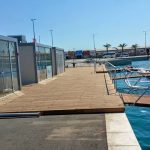Four separate expert investigations into the grounding of Croatian seaplane operator European Coastal Airlines by the Croatian Civil Aviation Authority come to the same conclusion: the grounding was unjustified and the issues found by CCAA broadly dismissed, according to documents obtained by TCN on October 17, 2016.
The plot is beginning to thicken and there is a smell of fish in the air regarding the story of Europe’s first seaplane operation in modern European history.
European Coastal Airlines was grounded by the Croatian Civil Aviation Authority on August 12, following a three-day inspection, with the agency finding 9 Level 1 and 3 Level 2 findings against the airline. Level 1 means that passenger safety is in danger and the plane needs to be grounded. Level 2 means passengers are not at risk, but procedures or documentation at the airports needs amendments. In the case of a Level 2 finding, the airline is given some time to recitify the situation, which usually means producing some missing documentation, while a Level 1 finding requires the aircraft to be immediately grounded. It is my understanding that while a Level 1 finding in any airline would be grounds for an immediate suspension of operations for that aircraft, Level 2 findings are not uncommon in most airlines, who operate in an industry which is highly regulated and bureaucratic.
Much has been written about the ECA seaplanes being dangerous, an assertion which seemed to be justified by the CCAA finding of no less than nine Level 1 findings during the three-day inspection.
But it is interesting to see what the aviation experts think…
Below, the summary of four expert opinions, two of which are signed and stamped by certified court experts in the field of aircraft accidents and air traffic. Expert opinions which paint a rather different picture…
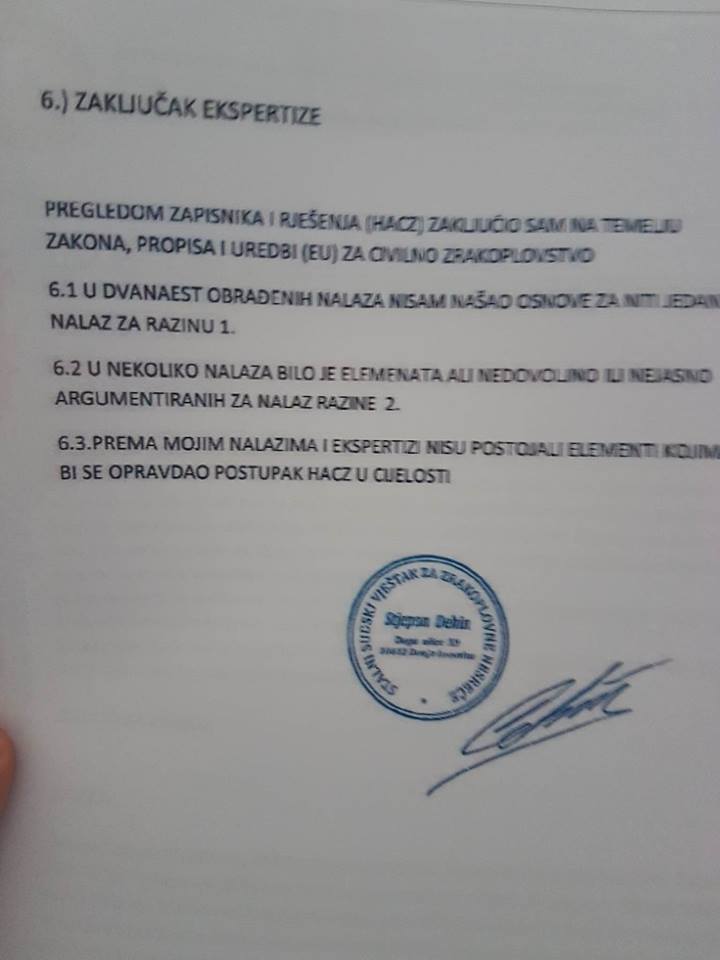
By examining CCAA’s report and decision, I have concluded that based on the laws, ordinances and regulations (EU) for civil aviation:
1. In 12 analysed findings, I found no grounds for any finding of Level 1.
2. In several findings, there were elements, but not sufficiently and clearly argued to be findings of Level 2.
3. According to my findings and expertise, there were no elements which justified the proceedings of CCAA.
(Expert: Stjepan Dehin, Permanent Court Expert for Aviation Accidents and Incidents)
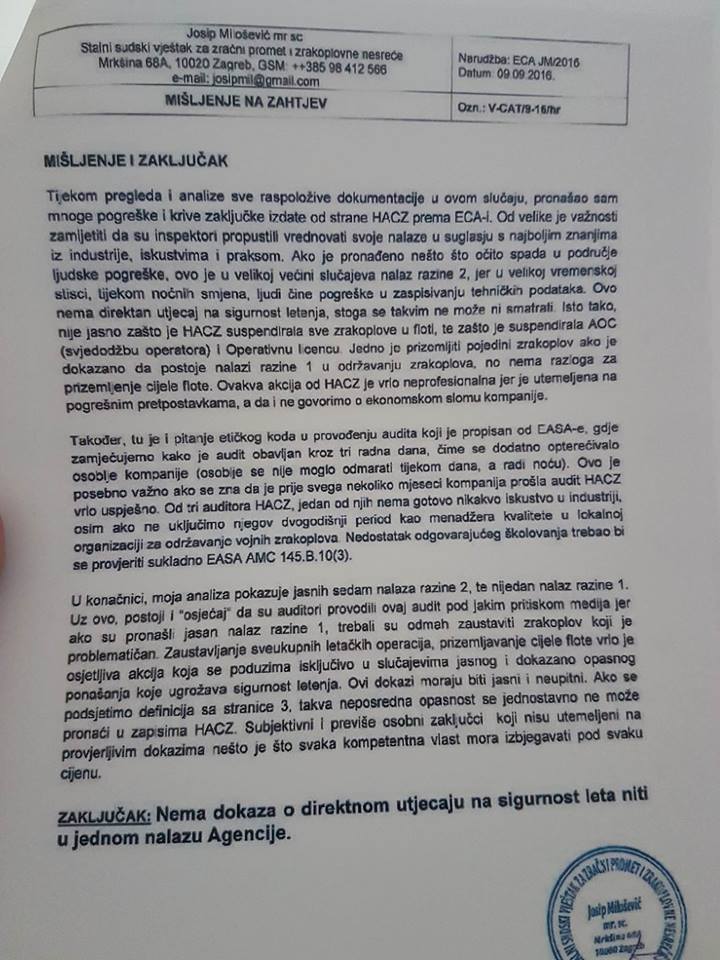
During the overview and analysis of all available documentation applicable to this case, I found many errors and faulty conclusions given by CCAA to ECA. It is of the highest importance the fact that the inspectors missed to value their findings in accordance with the best industry knowledge, practice and experience. If something found is obviously in the field of human error, this in the majority of situations is of Level 2, simply because in a time-pressured environment, during night shifts, humans make mistakes in the completion of technical documentation. This has no direct impact on safety, so cannot be valued as such. It was also very unclear why CCAA suspended flight operations of the whole fleet, and why they suspended the AOC and Operating Licence. One thing is to ground a particular aircraft if there are significant Level 1 findings in its maintenance, but there is no reason to ground the whole fleet. Such action is highly unprofessional and based on faulty assumptions, not to mention the economic breakdown of the company due to such questionable assumptions.
…
In total, my analysis shows seven clear findings of Level 2 and not one Level 1. In addition, there also exists a ‘feeling’ that auditors performed this audit under high media pressure, and if they had found Level 1 findings on the site, they should have stopped the aircraft immediately, but this was not the case. Stopping the complete flight operations and grounding the whole fleet is an extremely sensitive action which should be issued only in situations where there exists clear, unquestionable and factually verifiable evidence of a high degree of danger to flight safety. If we revert back to page 3 of this document, such an imminent threat to the safety simply cannot be found in the evidence presented by CCAA. Subjective and too personal conclusions not established on easily verified evidence is something that any competent authority must avoid, regardless of the cost.
(Expert: Josip Milosevic, Permanent Court Expert under Oath, Field – Aircraft Accidents and Air Traffic)
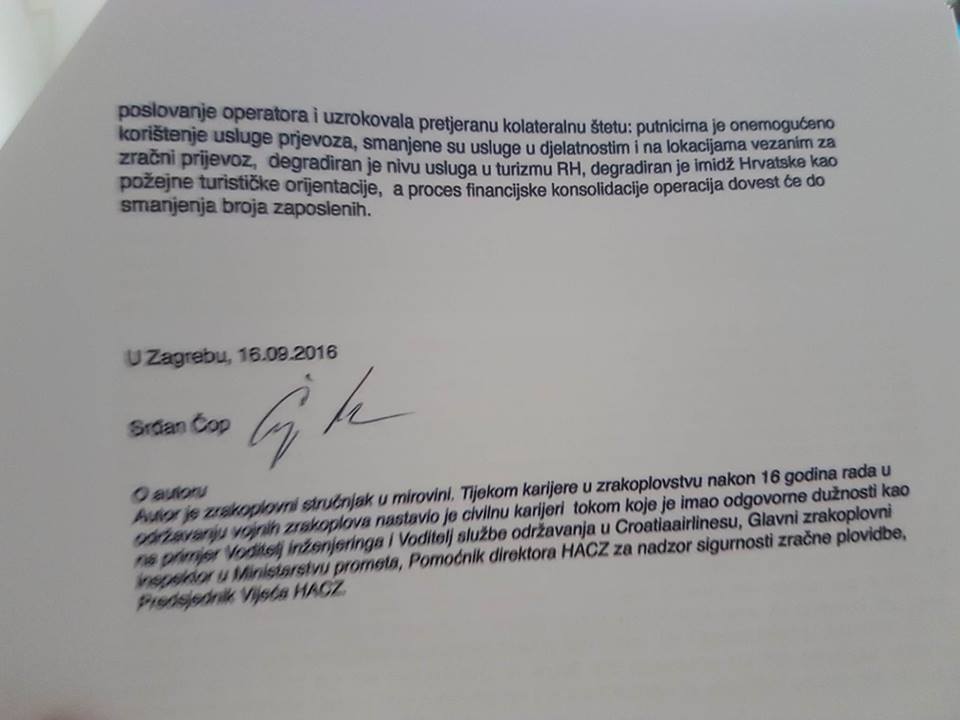
CCAA made two omissions in the decision-making process:
The first is the repeated error in determining material facts as the basis for categorizing Level 1 findings. It is an incorrect conclusion that a missing documet is evidence that an action has not ben performed, and that it has not been systematically done, or that something is incorrect.
The second omission relates to failure of additional control. The decision was signed by one of the inspectors who carried out the inspection. However, he did not take into acount other relavent information in his possession, or in possession of CCAA (for example information from the comprehensive oversight of the operator, compliance with regulations, assesses the effects of the decision), and if there was a formal evaluation of the inspection before issuing this decision.
…
The decision to revoke the licences and permits on the one hand accelerated activities to correct the non-compliances found. Decisions on the other hand jeopardised the continuation of the business of the oparator and caused excessive collateral damage; passengers were prevented from using the transportation service, reduced services and activities at locations related to air transport, degraded the level of services in tourism in Croatia and the image of Croatia as a desirable tourist destination, while the whole process of financial consolidation of operations will lead to a reduction in the number of employees.
(Expert: Srdjan Cop, retired aviation expert after career in aviation, including 16 years in military aviation maintenance, Chief Aviation Inspector in the Ministry of Transport, Assistant Director of CCAA for safety of air transport, and Chairman of the Board of Governors of CCAA).
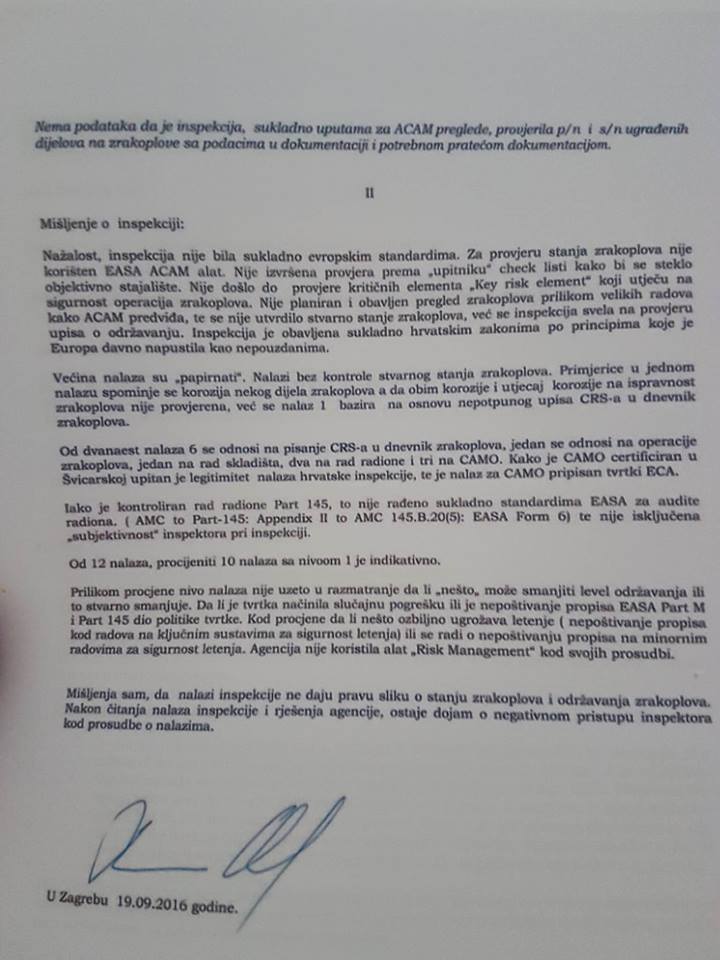
In my opinion, the inspection’s findings do not give the real picture of the condition of the aircraft and aircraft maintenance. After reading the findings of the inspection and of the Agency, the impression which remains is a negative approach by the inspectors when assessing the findings.
(Expert: Tomislav Obad dipl. ing)
Some very interesting conclusions which are somewhat at odds with the official report.
I have been living in Croatia long enough to know that there is much more to this story than meets the eye, and there are also news sites with a much better understanding of the workings of the Civil Aviation Authority than I do, so I will leave it to others to dig a little deeper into what is becoming rather an intriguing story. I am happy to share the full documents of each expert, as well as the decision of the Croatian Civil Aviation Authority. Please contact me on news@total-croatia-news.com
I met ECA CEO Captain Klaus Dieter Martin in Split last night to interview him about these documents, as well as other topics for which people are seeking answers, such as refunds, pilots flying without work permits, the plans for the future, and his intention to sue CCAA. A full transcript of that interview will be published shortly.

